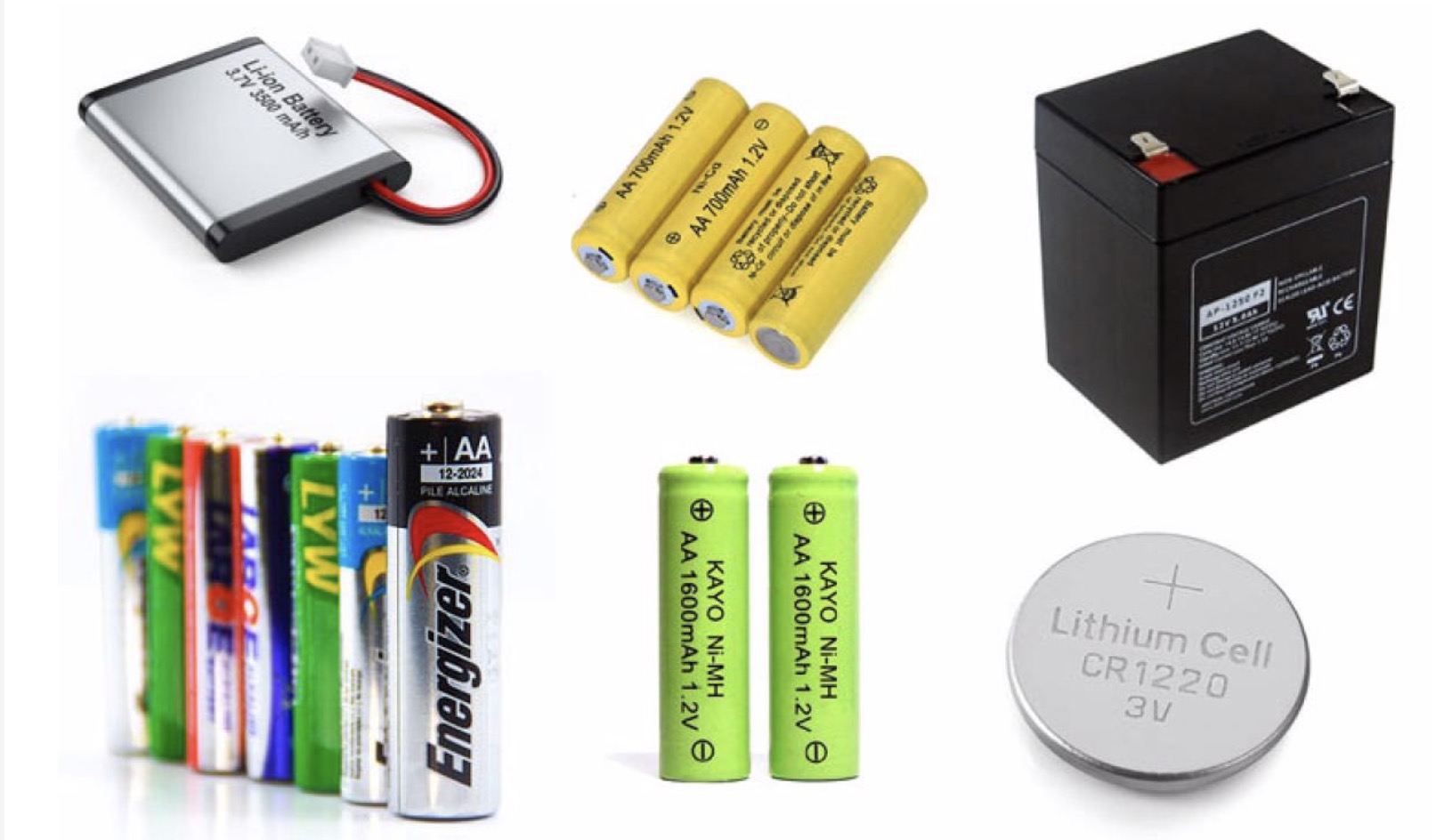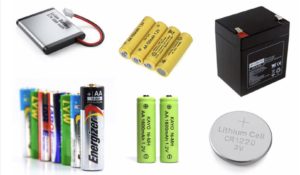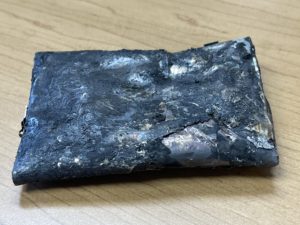
Batteries: Small Item, Huge Benefits, Serious Consequences:
In a nut shell…Alkaline Batteries – A, AA, AAA, C, D and 9V – are the ONLY batteries that are NOT hazardous waste.
We live in changing times.
Innovation, advancement, modernization…scientists, engineers, inventors…are always introducing us to the “next best thing.”

Batteries are one little item that has seen quite a makeover in the past decade. Materials that bring a better, brighter, longer lasting battery are made from materials considered hazardous waste.
Not only do they contain toxic materials, they easily explode when tampered with or crushed.
Compaction is vital to waste disposal.
From the garbage compactor truck that picks up your trash, to the 90,207 pound machine at the landfill, your trash gets a thorough smash before it settles into its final resting place. Recycling is also rigorously smashed as our machines compress the materials into bales.
Fire! Fire!
Fires are one of our largest concerns. A tiny spark can start a fire that can burn for days, or reignite days later, depending on winds. Imagine a 9 acre cell filled with highly flammable materials, or a warehouse filled with paper and cardboard. The threat is real.
Those little batteries in your trash or recycling are a ticking time bomb. Just the right bump, and we have a fire on our hands.

This battery was in a load of garbage that was crushed in early February. Luckily our landfill operator was able to get to this immediately, cover with dirt, and a landfill fire was avoided.
Hidden in Plain Sight:
Batteries that fall into the hazardous category are hidden everywhere. From singing greeting cards, to outdoor solar lights, they are hiding in plain sight.
Watches, E-cigarettes, car remotes, hearing aids, toys, games & gaming controls, phones and laptops all contain lithium-ion, nickel metal hydride and nickel-cadmium batteries.
NOT THE END!
When non-alkaline batteries go in the landfill, not only are they a ticking time bomb, they are forever gone.
When non-alkaline batteries go into the hazardous waste program, they are safely dismantled and the materials are used to make new batteries.
It is free to dispose of batteries in the hazardous waste program located at the county transfer station or recycling center. Local salvage yards will pay you for your lead acid battery. (car batteries)
Keep your old batteries in product circulation! Recycled batteries help power the world and preserve our natural resources!